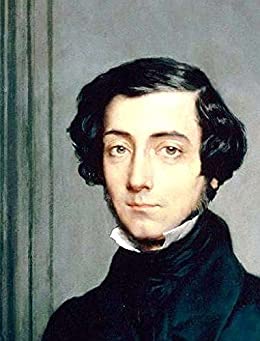
Alexis de Tocqueville was a French historian and political scientist best known for the work Democracy in America on the American political system.
Below is an excerpt from a biography of Alexis de Tocqueville included with our books.
| Title | Published |
|---|---|
| Democracy in America | 1835/1840 |
| The Old Regime and the Revolution | 1856 |
The birth date of Tocqueville’s birth was recorded on July 29, 1805 in Paris, France. His father was an officer of the Constitutional Guard of King Louis XVI and Louise Madeleine Le Peletier de Rosanbo.
After barely escaped the guillotine due to the fall of Robespierre in 1794 and an exile in England, Tocqueville’s family returned to France during the reign of Napoleon. Tocqueville attended the Lycée Fabert between 1817 and 1823 in Metz. In the meantime, his father’s career had been steadily advancing until, in 1826, he became prefect of Versailles (the most influential prefecture in France) and in 1827 was made a peer by Charles X.
After finishing at the Lycée Fabert at age 18, Tocqueville moved back to Paris where he studied law. Tocqueville did not complete any formal higher education. He began his political career in 1830.
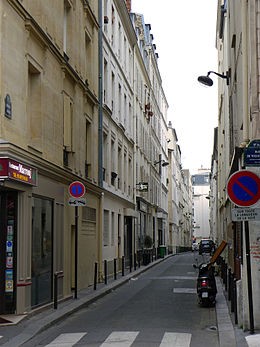
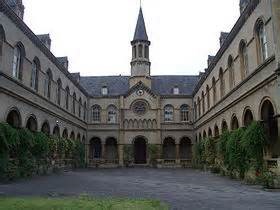
Tocqueville received a position as apprentice magistrate at the Versailles court of law when he was studying law in Paris.
The July Revolution of 1830 had strong repercussions on Tocqueville. Seeing that France was moving toward democratization, he looked to the United States as a political model.
Tocqueville visited the United States at the age of 26 years old for nine months in 1831. He traveled extensively and recorded his observations of life in the young nations. Tocqueville gleaned an insightful view of American society and the first-hand experience through observations, readings, and discussions with eminent Americans formed the basis of Democracy in America.
Tocqueville forecasted rising of the United States and Russia as the two main global powers in his book Democracy in America as the follows:
“There are now two great nations in the world, which starting from different points, seem to be advancing toward the same goal: the Russians and the Anglo-Americans… Each seems called by some secret design of Providence one day to hold in its hands the destinies of half the world.”
He further wrote “I must say that I have seen Americans make a great deal of real sacrifices to the public welfare; and have noticed a hundred instances in which they hardly ever failed to lend a faithful support to one another,”
Although his predication about Russia after collapse of the Soviet Union is not true today, the observation on philanthropy made by Tocqueville in 1831 is true today. America is still the best country to understand that advancing the common good means creating opportunities for a better life for all.
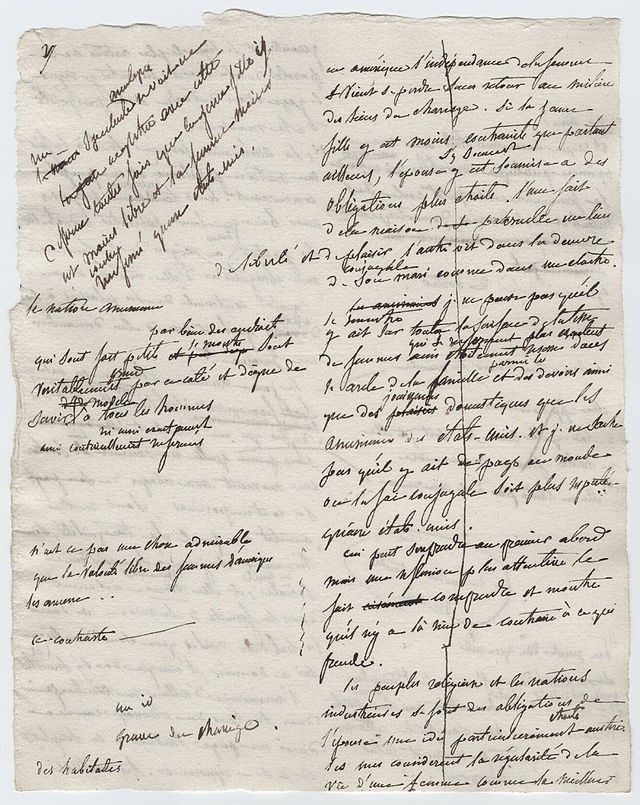
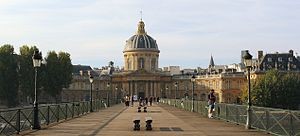
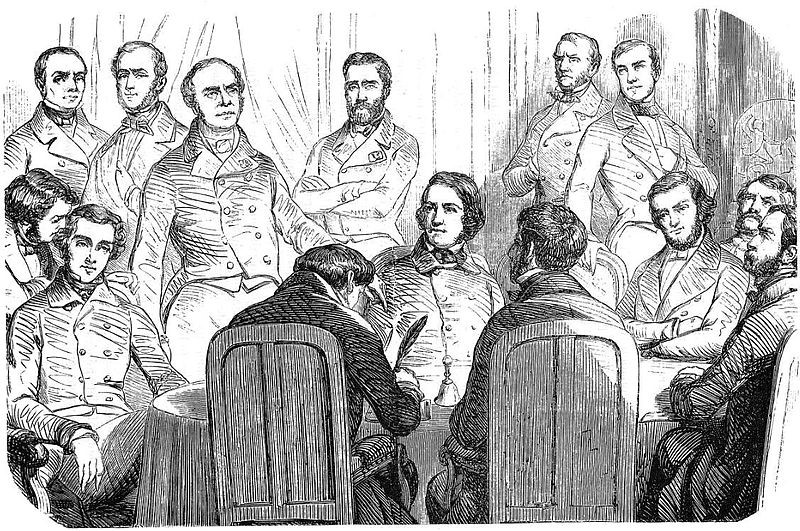
After his trip to America, Tocqueville visited England to study the British system of government. In 1835, Tocqueville married Mary Motley, an Englishwoman.
In 1938, Tocqueville was named to the Legion of Honor for Democracy in America.
In 1839, he was elected to the Chamber. In the Chamber of Deputies, Tocqueville supported expanding naval power to challenge British dominance and the Catholic Church’s teaching role in a dispute between the Church and the University.
In 1841 Tocqueville was elected to the French Academy and the Academy of Moral and Political Science. That same year he visited Algeria, a French colony, and sharply criticized the French military and bureaucracy in the country.
In 1844, Tocqueville became one of the owners of the radical newspaper Le Commerce. In 1846 he aligned himself with the new left faction in the Chamber.
In 1848, Tocqueville was elected to the Constituent Assembly and helped to write the constitution of the Second Republic. In 1849, Tocqueville was elected to the Legislative Assembly and became Vice President of the Assembly and Minister of Foreign Affairs. After his dismissal in late 1849, Tocqueville suffered a physical breakdown and went to Sorrento, Italy to recover his health.
In 1851, Tocqueville returned to Paris right before Louis-Napoleon’s coup to take over the government. He strongly opposed to the coup and was imprisoned briefly. After that, Tocqueville was barred from holding public office because he refused to swear allegiance to the new regime.
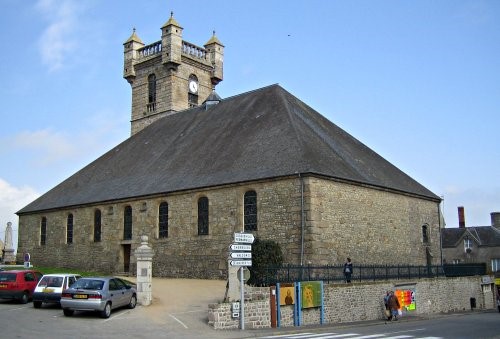
After leaving the political stage, Tocqueville focused on writing The Old Regime and the French Revolution in the early 1850s. In 1856, Tocqueville’s father died. On April 16, 1859, Tocqueville died of tuberculosis in Cannes, France.
Tocqueville is buried in the village of Tocqueville near Normandy. His Recollections were published in 1893.